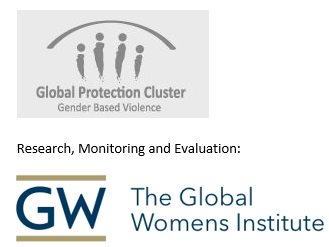- Engage women and girls in all aspects of the DDR process. Women and girls – ex-combatants as well as community members – must be involved in the assessment, planning, implementation, and monitoring and evaluation of all aspects of the DDR process, so that their security and protection needs are fully taken into account (UNMIL and OGA, 2010). For example:
- Higher-ranking female ex-combatants can be an invaluable resource in contributing to post-conflict society and the rehabilitation of girl ex-combatants. In order to maximize their potential, special attention must be paid to the inequality, stigma and poverty they face (Specht, 2006).
- Countries contributing troops for DDR and peacekeeping purposes should fast-track women for deployment, provide them with training and offer enhanced employment opportunities (UNIFEM, 2004).
- Gender experts should be deployed in the assessment, planning, design, and implementation of all DDR programmes. Ensure adequate funding is available for these experts from the start of all programmes (UNIFEM, 2004).
- Quota systems should be adopted in the security sector and in the political, economic, and local NGO arenas to ensure equal representation of women. (For more information see Engaging Women in Participation and Leadership.)
- Avoid one-size-fits-all models of DDR. The experiences and needs of women and girls associated with armed groups vary extensively depending on their role in the conflict, duration and intensity of involvement, experiences of trauma, connection to their family and community, and countless other factors. DDR programmes should assess needs and capabilities individually and ensure women and girls have the autonomy to choose what is the best course of action for their situation (Council of the European Union and the European Commission, 2006).
- Use a community-based approach that seeks to serve both women and men, ex-combatants, supporters and civilians. Community based social reintegration promotes reconciliation and peacebuilding among DDR participants, as well as building social cohesion among women at the community level (UNDP, 2011). Programmes should foster alliances between female ex-combatants and women’s organizations in the community to enhance opportunities for skill sharing and support (i.e. through motherhood or livelihoods programmes). Involving women throughout the DDR and peacebuilding process is integral to the reformation of law and justice systems in a way that is equitable toward women. Successful DDR requires that women be involved in the difficult decisions of “how to balance restoration of community life and retribution for crimes committed during the war” (USIP, 2011, p. 5).
- Maintain ongoing coordination with all international, national, and local stakeholders, and take the larger picture into account. The safety needs of women associated with armed forces and women in the community should be mainstreamed throughout all the sectors that may be enlisted to provide support to the DDR process (UNMIL and OGA, 2010). DDR is most successful when there is a functioning state that can provide basic services, a functioning economic system with opportunities for livelihoods, and a legal system that supports women’s equality. Any or all of these may have been heavily impacted during conflict. DDR programmes must consider weaknesses in the system, use creativity to capitalize on strengths, and work in conjunction with other actors to support overall rebuilding efforts (Council of the European Union and the European Commission, 2006).
